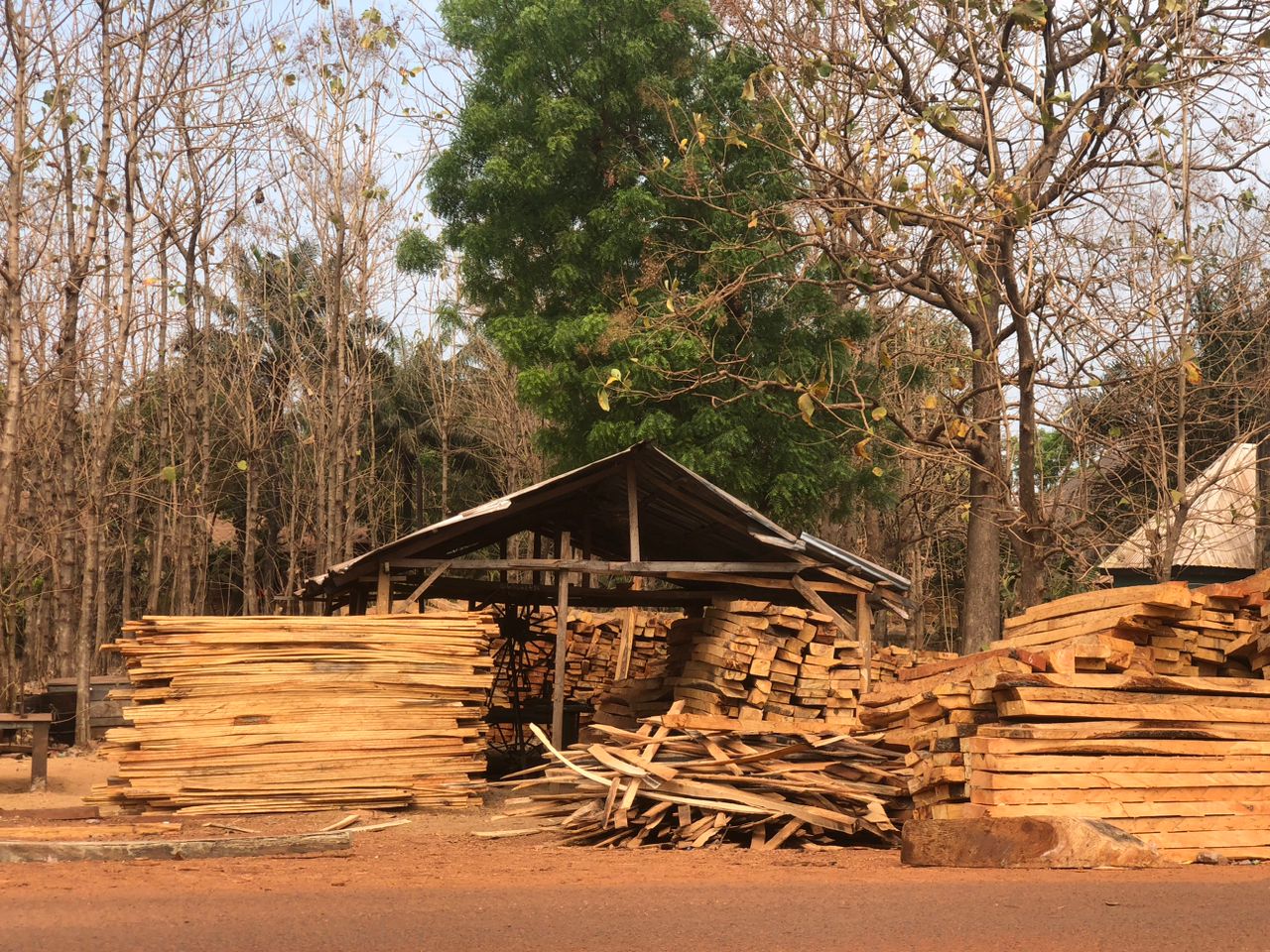Across the Idoma, Igala, and Ekureku people of Nigeria, certain traditions are keeping tabs on women’s fidelity, income, and their choice to bear children.
TheMiddleBelt
Children suffering from sickle cell disease are referred to as “Abiku” by the Yoruba and “Ogbanje” by the Igbo, which translate to mean “born to die” and children that come to cause suffering to their parents.
Mike Ede, 56, from Opiruku, Oju Local Government Area of Benue State, North-central Nigeria, couldn’t believe that her ever fertile land that was a source of healthy products could reduce in nutrients as he stood looking at the piece of land. “Only but a glorified farmland,” Ede’s thought betrayed him aloud as he tried hard to swallow the pain. Mr Ede wouldn’t have worried enough if only the trend is just on a piece of land, but across many farmlands in “Orihi” and “Iyato”- the two most fertile areas where foods are grown in the local government, at least that is accessible for him. “There were times all these places were full of trees and covered grasses, you could barely go through them because of the thickness of the grasses,” Mr. Ede explained. He continued, “At that time, a piece of land in this area can give you a double output increase especially if it’s cassava or yam, you could feel the nutrients.” As we speak, it is as dry as anything and the scorching sun around this place wouldn’t even allow you till the land.” Mr. Ede is an established farmer in the Opiruku community whose annual income used to be above N200,000 and just from farming yam. Rice and other farm products are often done mainly for consumption. He would charter a cab from Otukpo, a nearby town of about 25 kilometre just to transport yam produce as far as port-Harcourt, River State capital, for sale. But the trend has changed, Mr. Ede is witnessing a drastic shift as a farmer, going through massive regression and he can no longer boast of such a harvest. “In 2020, during the coronavirus pandemic, yes, there was a lockdown but it didn’t stop me from farming, I made over N200,000 by just supplying yam from my farm. But that is history now, I have resolved to subsistence farming and it’s demeaning to know, people are creating wealth at the detriment of others,” he further lamented. “Life was cool, food security was assured. But all that has changed now. It is very difficult to have a matching return of interest. Not only because of the illegal logging but all the penetration of these heavy-duty vehicles to our lands.” Mr. Ede probably wished that the ugly situation would stop in his community of Opiriku. What he’s not aware of is that other communities like Ipav, in Gboko Local Government, Mballa and Gwer Local Government Areas also suffered deforestation and illegal logging. Statistics Mr. Ede is one of the 1.6 billion people worldwide that depend solely on the forest for food, shelter, medicine, and income as reported by the 2021 Global Forest Goals report. Deforestation is consistently a threat to biodiversity in Nigeria and a report from the Food and Agriculture Organisation of the United Nations (FAO), says that between 2000 and 2005, Nigeria had the highest level of deforestation in the world. 55.7 per cent of the country’s primary forests were lost. Again in 2021, Global Forest Watch reported that Nigeria had lost 96.5kha of natural forest, equivalent to 65.3Mt of CO₂ emissions. According to the Conservation Foundation (NCF), Nigeria had lost 96% of its original forests, no thanks to deforestation. Although drought and deforestation have happened as natural occurrences caused by climate change, human activities have aggravated the disasters in some parts of Nigeria. Sad stories Isaac Obigwa, 54, of the Igwe community in Konshisha Local Government Area could not resist the urge to cry after a heavy downpour swept his yam farm. The year has been tough for him and his family. His hope for his family of seven including one wife and six children is the budding yam farm. It wasn’t long before the hope was dashed. Isaac had gone weeding around his farm the previous day. He said: “I had appreciated God about the farm already. It was going to be harvested within the next two months. But after a heavy downpour. The tragedy happened.” Isaac could only trace the flood to the number of trees that were removed in the farm area in the last years. “Cutting down trees gave way to erosion and that was what happened,” he said, adding that: “It was never like this, I have been farming here for the past three years and it was never flooded. It is not even close to the river. I discovered that there was enough space for water to accumulate. Trees around were cut down and there was nothing to disturb the flow.” Unlike Isaac whose farmland got washed away, Onah Ogiji, 54 years, another farmer in the Ojumole community in Gwer Local Government Area of Benue State, lamented the inability of his farmland to yield crops. According to him, soil erosion has caused hunger as the soil is now unfit for crops because of the direct exposure to the sun. “A few years back, we could confidently boast that farm products are good for our land. It is no longer the same. Nothing yields again in our farmland,” Mr Ogiji said. Borgen Projects explained that “one out of six people rely directly on forests for food, deforestation can lead to overworked soil, which in turn leads to soil erosion. Farmers and surrounding settlements become at risk for famine if the soil becomes unfit for crops”. Poverty as a factor Ega-Ibilla, a community in Oju Local Government Area, like other communities of Obugbehe, Ito, in Obi LGA, have its residents helplessly lamenting the unethical activities of illegal loggers. James Ulegede, 49, in Ega Ibilla, has had a fight with unknown people who have gone to his farmland to cut trees. Mr Ulegede said: “I had just come back from a meeting when my wife told me she heard a sound and like one of the trees in my farm was falling. It was true, luckily, I met who did. “He later offered money for it. I collected it because I couldn’t force my tree to stand back, But how long can we continue with that? “They go about offering little money. At the moment, an average tree is just about 500 to N1,000 depending on the size. “This is how they have made it legal and destroyed our farmlands.” “They go with heavy-duty motors, some known as “Agbigi” are in the forest packing wood to the sawmill on the road.” Suspected loggers react When contacted, Mr. Aruke Simeon, a self-acclaimed leader of the ‘Ichakobe Depot’ an illegal sawmill factory in Ichakobe, in Oju Local Government area, argued that forests are natural gifts and that no one should be threatening another person over it. “Climate change or whatever change you called it does not concern me. The country is already hard. Nobody should scare another person away from the natural gift from God. He continued, “Even the owners of these forests and woods, we pay them. When they dont even feed these woods, we pay them for it before we go with our operations and everyone goes home happy,” Mr. Aruke said. At this point, he threatened the reporter to get away from the factory. Failed Policy To cushion the looming effect of deforestation, Nigeria took a step to introduce various policies like the National Forest Policies of 1988, 2006, and 2020. The plan was to “achieve sustainable forest management that would ensure sustainable increases in the economic, social and environmental benefits from forests and trees for the present and future generation including the poor and the vulnerable group” as written in the objectives of these projects. These policies have not been able to deliver on their objectives. For instance, In the targets goals submitted to Global Forest Goals, Nigeria outlines possible actions and targets toward a sustainable forest. The first goal, “Reverse the loss of forest cover worldwide through sustainable forest management, including protection, restoration, afforestation, and reforestation, and increase efforts to prevent forest degradation and contribute to the global effort of addressing climate change.” Among other descriptions of actions, it planned to establish a Green Cover of 708.46 Km shelterbelt, 382.7ha community woodlots, 369ha community orchard, and 138ha vegetable garden are established across the country’s drylands. Also, goal two states that: “Enhance forest-based economic, social, and environmental benefits, including by improving the livelihoods of forest-dependent people” The country had claimed it has engaged 498 youths as forest guards but there is no data to back this up. However, the bill to empower the guards it claimed to have engaged has only passed the third reading in April 2022. “Government aware of the menace” Contrary to the document, the Director of the Forestry Department of the Federal Ministry of Environment, Rasak Adekola, in a phone call with this reporter, said the the government did not have plans of recruiting ‘forest guards’ but “forest rangers”. “Only the state government may have plans of recruiting forest guards. Currently, at the federal level, we are walking on unleashing a joint task force that would be responsible for maintaining sustainable forest management in the country,” Mr. Adekola said. When asked if the government was aware of the illegal logging across Nigerian forests, the director’s answer was in the affirmative. “We are aware of this illegal and indiscriminate wood logging and deforestation in some parts of the country like Benue. We are also aware that part of it is the way of recovering from COVID-19. However, there are various mitigative plans by the federal government like that of a joint task force which would begin operation in no time,” he said. According to Earth.org, The Federal Ministry of Environment has said that the weak institutional ability to effectively execute sustainable forest management policies and practices contributes to Nigeria’s forest resources decline. The New Humanitarian also reported the government’s dire challenge to address the underlying factors facilitating deforestation in Nigeria, such as weak regulations and an absence of policy support. The new route 2030 is barely eight years ahead and Nigeria, alongside 104 others, has said it will end deforestation. Towards achieving the target, in 2021, Nigeria launched the Reducing Emissions from Deforestation and Forest Degradation (REDD+). According to Mr. Moses Ama, the National Coordinator of the programme, “REDD+” is called readiness where the country puts a pillar to act, recalling that Nigeria has a history of deforestation programme that eventually becomes “REDD+”. He added that only seven states in Nigeria had agreed to be part of the REDD+ programme so far. This report was completed as part of the Centre for Journalism Innovation and Development‘s 2022 Climate Change Media Fellowship in West Africa with funding support from the Centre for Investigative Journalism’s Open Climate Reporting Initiative (OCRI).
“The phenomenon of “press release journalism” in the Middle belt region has overtime, hindered the uncovering of valuable facts and realities of critical sectors in the area. thereby limiting the effect of the people’s will – a menace he frequently said must be halted.” By: Bryan Ula. A bid to respond to the clamors for quality reportage in the middle belt region of Nigeria births a sustainable initiative and regional news media, “Middlebelt Reporters.” The online media platform on Friday 9th December 2022, commenced a 3Days compulsory virtual Capacity Training for 28 selected early career journalists on high-quality reportage focusing on investigative reporting and human interest stories among others emanating from the region. North Central Nigeria also regarded as a middle-belt region consists of six states Benue, Kogi, Kwara, Nasarawa, Niger, Plateau, and the Federal Capital Territory, FCT Abuja. Speaking during the training, the host and founding partner of Middle belt reporters, Jairus Awo, emphasized the essence of its existence noting that the phenomenon of “press release journalism” in the Middle belt region has overtime, hindered the uncovering of valuable facts and realities of critical sectors in the area. thereby limiting the effect of the people’s will – a menace he frequently said must be halted. According to Mr. Jairus, the dilapidating realities of the middle-belt states in Nigeria ought to be exposed in order to attract relevant interventions hence, the need to give the voiceless (people) a voice to foster positive change and development. Mr. Jairus further added that the era of press release journalists has lasted long enough and is due for extinction as early career journalists must endeavor to expose themselves to the current realities of the evolving nature of the journalistic profession while upholding ethical standards and competing highly with reporters/journalist from other regions who are obviously setting the pace already. This he said can only be achieved when journalists within the region move from their comfort zones to ask propelling questions, find relevant answers to these questions through research and meaningful investigations, and expose those realities to the public through their writings. He assured that Middle Belt reporters would serve as a home and platform for all volunteers to learn and express themselves while contributing their quota to developing their respective communities through fact-based reporting. A facilitator at the online capacity training, Nanji Nangdang a freelance journalist and a fact checker lectured on the holistic approaches employed in carrying out investigations and reporting facts. Nanji further encouraged the story-telling approach of news reporting for early career journalists to help give meaning and a seamless flow of ideas to their reportage. Also, James Ojo, a reporter with TheCable newspaper challenged participants to dare to grow from conventional to more sophisticated styles and means of news gathering and reporting by writing compelling stories on valuable or high-interest topics with accurate data and analysis which she believes will serve as a springboard for their respective careers. Other facilitators at the online training were the Middlebelt Reporters’ Associate Editor, Linus Egwu, and Oche Emmanuel, the Managing Editor. The MiddleBelt Reporters is a regional online news platform documenting grassroots news, features, investigations, developments, solutions, tech, and social justice as well as fact-checking in the North-Central. Nigeria





